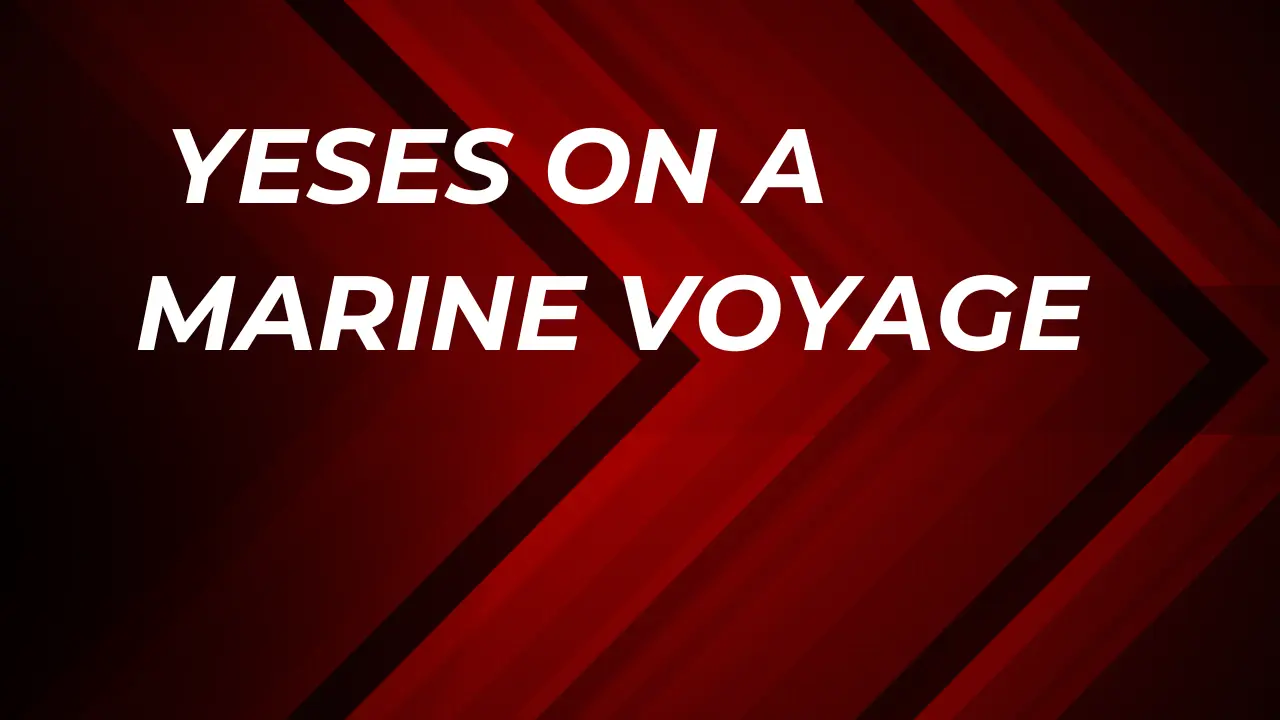Yeses on a Marine Voyage: Understanding the Phrases

Yeses on a marine voyage might sound simple, but it carries a rich history and deep cultural significance. This article explores this maritime phrase’s origins, evolution, and modern relevance, making it easily understandable for 8th-grade students. You’ll see why this phrase is more than a sailor’s agreement.
Historical Usage of Yeses on a Marine Voyage
The phrase yeses on a marine voyage dates back to the early days of sea exploration. Sailors needed clear, simple communication to navigate treacherous waters. They used concise affirmations like “aye” to confirm orders. This was crucial for the safety and efficiency of the ship. The term “yes” became a standard response, evolving over centuries as maritime language developed.
Modern-Day Relevance of Yeses on a Marine Voyage
Today, yeses on a marine voyage might not be heard as often on modern vessels, but it remains a part of maritime tradition. Sailors still use clear, direct communication, especially in emergencies. The phrase is also used metaphorically, representing agreement or affirmation in challenging situations, reflecting the spirit of cooperation vital in seafaring.
Also Read: The Mysteries of Sirler: A Journey into the Unknown
Linguistic Analysis of the Phrase
Breaking down “yeses on a marine voyage,” we see its simplicity. “Yeses” are straightforward affirmations, essential for clear communication. “Marine Voyage” implies a journey at sea, emphasizing the context in which these affirmations are used. The phrase itself reflects the importance of direct and unambiguous language in maritime settings.
Cultural Significance of Maritime Affirmations
In maritime culture, affirmations like “yes” or “aye” are more than just words—they symbolize trust and cooperation. These phrases are embedded in the rituals and traditions of seafaring communities. For example, during a ship’s christening, the captain might say “aye” to signify the ship’s readiness for its maiden voyage, showcasing the deep cultural roots of such affirmations.
Popular References
The phrase has made its way into popular culture, appearing in movies, books, and songs about the sea. For instance, in classic pirate films, characters often shout “aye” as a sign of agreement. These references keep the maritime spirit alive in modern storytelling, linking the past with the present.
Conclusion
Yeses on a marine voyage may seem like a simple phrase, but it holds a significant place in maritime history and culture. From its origins in early sea exploration to its modern-day relevance, the phrase reflects the importance of clear communication in navigating the challenges of the sea. Understanding this phrase helps us appreciate the rich traditions of maritime life and the enduring spirit of cooperation that defines it.
FAQs
What does “yeses on a marine voyage” mean?
It refers to affirmations made during a sea journey, highlighting the importance of clear communication in maritime settings.
Is the phrase still used today?
Yes, although less common, it remains a part of maritime tradition, especially in emergencies.
How did the phrase originate?
It originated from the need for clear, concise communication among sailors in the early days of sea exploration.





